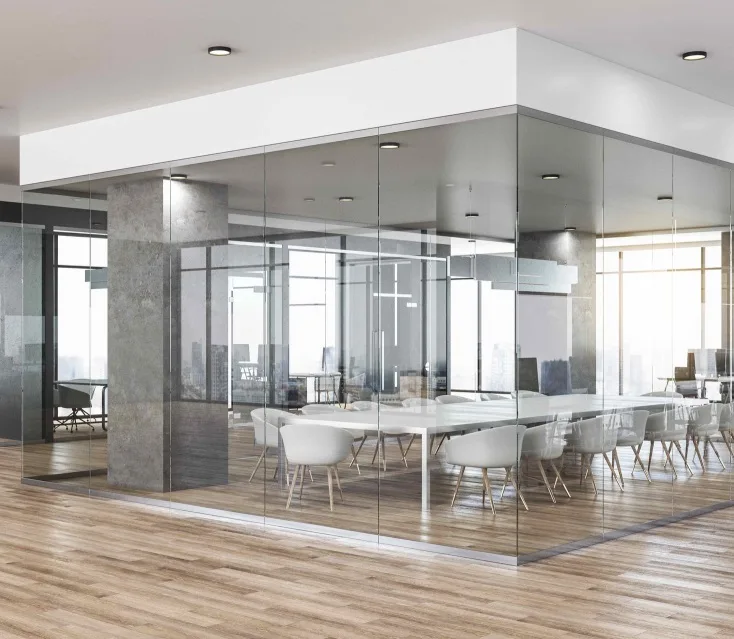Keeping up with the maintenance of a commercial property is essential for its longevity, functionality, and appeal. Whether you own a retail space, office building, or industrial facility, proper maintenance is crucial to ensure the occupants’ safety and the preservation of your investment. This post looks at everything you need to know about effectively maintaining a commercial property.
Regular Inspections
Regular inspections are the cornerstone of effective property maintenance. Conduct thorough inspections of the building’s exterior and interior, including structural components, plumbing, electrical systems, HVAC systems, and safety features. Establishing the issues early can prevent costly repairs and minimize disruptions to business operations.
Scheduled Maintenance
Establish a comprehensive maintenance schedule to address routine tasks such as cleaning, landscaping, HVAC servicing, and equipment checks. Create a calendar outlining when specific tasks need to be performed to ensure consistency and prevent neglect.
Keeping residential property in good condition costs very little. The building is occupied by tenants around the clock, and as a result of low usage and low repair costs, issues are unlikely to arise. However, due to the bulk size of the machinery, maintaining commercial properties is quite expensive. In such cases, working with the regions best commercial property agents can be beneficial, as they offer expert guidance on maintenance strategies and cost-effective solutions. Similarly, regular inspections and proactive upkeep help prevent costly repairs, ensuring the building remains functional and appealing to tenants. Investing in energy-efficient systems, such as automated HVAC and smart lighting, can also reduce long-term maintenance expenses.
Emergency Preparedness
Prepare for emergencies by implementing safety protocols, conducting drills, and ensuring the availability of emergency supplies like fire extinguishers and first aid kits. Develop contingency plans for various scenarios, including natural disasters, power outages, and security breaches.
Tenant Communication
Keep lines of communication open with tenants to address their concerns promptly and efficiently. Establish protocols for reporting maintenance issues and provide tenants with access to emergency contacts for urgent repairs.
Exterior Maintenance
The exterior of a commercial property is its first impression, so it’s essential to keep it well-maintained. This includes regular cleaning, landscaping, parking lot maintenance, and repairs to sidewalks, signage, and lighting fixtures – all of this can be provided by the experts at nssgroup.com.
Roof Maintenance
The roof is one of the most important components of a commercial property, protecting it from the elements. Schedule regular inspections to detect signs of damage or wear and deal with any issues promptly to prevent water leaks and structural damage.
HVAC Systems
Proper heating, ventilation, and air conditioning systems maintenance is essential for occupant comfort and energy efficiency. Change filters regularly, schedule professional inspections and cleanings, and address any issues promptly to avoid system failures.
Plumbing and Electrical Systems
Make sure that plumbing and electrical systems are in good working order to prevent water damage, electrical fires, and safety hazards. Inspect for leaks, clogs, faulty wiring, and outdated components, and address any issues promptly to avoid disruptions and potential liabilities.
Safety and Compliance
Stay up-to-date with building codes, regulations, and safety standards to ensure compliance and mitigate risks. Conduct regular safety inspections, install and maintain safety features such as fire alarms, extinguishers, and emergency lighting, and address any deficiencies promptly.
Budgeting and Planning
Budgeting for property maintenance expenses is crucial for financial planning and asset management. Allocate funds for routine maintenance, repairs, and upgrades, and prioritize projects based on their impact on safety, functionality, and tenant satisfaction.
Professional Assistance
While some maintenance tasks can be handled in-house, others may require the expertise of professionals. Build relationships with reliable contractors, vendors, and service providers for tasks such as roofing, HVAC maintenance, plumbing repairs, and electrical work.
Documentation
Keep thorough records of all maintenance activities, including inspections, repairs, and expenditures. Documentation helps track the property’s maintenance history and provides valuable information for future planning and budgeting.





